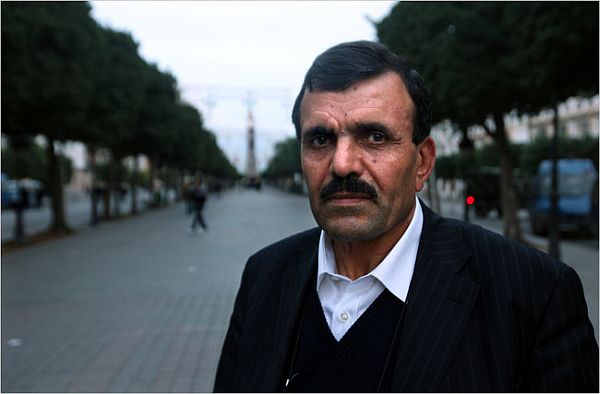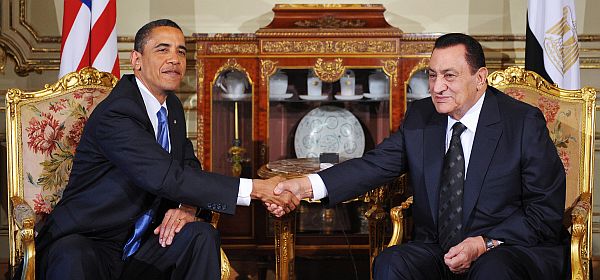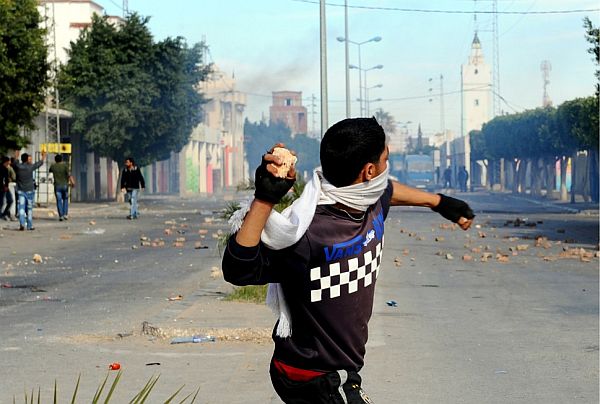On Friday, Andrew Sullivan — who heralded Iranian unrest 18 months ago as the Twitter revolution — was quick to dub the popular uprising in Tunisia a “WikiLeaks revolution” :
There seems little doubt that the Wikileaks-released cable describing the opulence of now former president Ben Ali’s lifestyle played a key part in bringing him down.
But what did WikiLeaks reveal?
In a July 2009 cable published by The Guardian on December 7, US Ambassador Robert F. Godec wrote:
The problem is clear: Tunisia has been ruled by the same president for 22 years. He has no successor. And, while President Ben Ali deserves credit for continuing many of the progressive policies of President Bourguiba, he and his regime have lost touch with the Tunisian people. They tolerate no advice or criticism, whether domestic or international. Increasingly, they rely on the police for control and focus on preserving power. And, corruption in the inner circle is growing. Even average Tunisians are now keenly aware of it, and the chorus of complaints is rising. Tunisians intensely dislike, even hate, First Lady Leila Trabelsi and her family. In private, regime opponents mock her; even those close to the government express dismay at her reported behavior. Meanwhile, anger is growing at Tunisia’s high unemployment and regional inequities. As a consequence, the risks to the regime’s long-term stability are increasing.
Average Tunisians were keenly aware of the corruption of their rulers, hated the president’s wife and his family and were expressing growing anger about unemployment — and all of this put the regime at risk. And yet — here’s the inexplicable element — somehow, all of these observable facts once encapsulated in a cable from the US embassy and then leaked by WikiLeaks became a “revelation” confirming what the average Tunisian already knew.
Tunisia is a small country that usually garners little international attention, so WikiLeaks can be given some credit for enlightening the rest of the world about the political instability of this Arab backwater, but to claim that WikiLeaks “played a key part” in bringing down the Tunisian president seems a bit of a stretch.
If the cable did include an important revelation, it was one unlikely to fuel Tunisians’ revolutionary fervor: that the Obama administration was being advised by it embassy to be less openly critical of the regime than the Bush administration had been.
For several years, the United States has been out in front — publicly and privately — criticizing the GOT [Government of Tunisia] for the absence of democracy and the lack of respect for human rights. There is a place for such criticism, and we do not advocate abandoning it. We do recommend a more pragmatic approach, however, whereby we would speak to the Tunisians very clearly and at a very high level about our concerns regarding Tunisia’s democracy and human rights practices, but dial back the public criticism.
In other words, the United States under Barack Obama’s presidency, would not stray from the longstanding American approach which attaches a higher value to stability than democracy — that sees US interests deeply invested in the continuity of autocratic rule in most of the Arab world’s so-called “moderate” states.
If dictators in the Middle East are seen as the bulwark preventing the rise to power of Islamists, then the US will nod in the direction of the oppressed by making calls for “democratic reform” even if the prospect of democracy is nowhere in sight. Indeed, democratic reform rather than being a stepping stone towards democracy is more likely seen as a preferable substitute, since democracy itself opens the door to those dreaded Islamists.
If the current administration preferred a “pragmatic” approach towards Tunisia and the instrumental role of WikiLeaks has been overstated, what about the influence of social media? Yesterday, Ben Wedeman from CNN tweeted: “No one I spoke to in Tunis today mentioned twitter, facebook or wikileaks. It’s all about unemployment, corruption, oppression.”
Jamal Dajani, who was in Tunis at the beginning of the month, writes:
It is very easy, but over-simplistic and naive to decide on a social media interpretation for the Jasmine Revolution, as we have been witnessing by many bloggers and self-appointed Middle East experts, many of whom neither speak Arabic nor have spent an extended period of time in the Middle East. They desperately want to convince us that Tunisians needed an external technological Western invention in order to succeed. A Twitter revolution of some sorts, as they previously labeled the Iranian Velvet Revolution, as though Arab masses were not capable on their own of saying “enough is enough.”
Certainly social media was used as a communication tool for Tunisians to air their frustrations with the economy, unemployment, censorship, and corruption. But many factors lead to its success, such as a well organized trade unions movement, and the most potent weapon in the Arab world, the youth.
Likewise during the 2009 summer uprising in Iran, Twitter only had a very minor role. In the London Review of Books, James Harkin notes:
In 2009, according to a firm called Sysomos which analyses social media, there were 19,235 Twitter accounts in Iran – 0.03 per cent of the population. Researchers at al-Jazeera found only 60 Twitter accounts active in Tehran at the time of the demonstrations, which fell to six after the crackdown.
Also, to the extent that the internet and social media did serve as revolutionary tools in Iran, they also served as a means to thwart the revolution.
Evgeny Morozov writes:
As we know from the post-protest crackdown in Iran, the Internet has proved a very rich source of incriminating details about activists; the police scrutinized Facebook groups, tweets, and even email groups very closely. Furthermore, the Iran government may have also analyzed Internet traffic and phone communications related to the opposition.
Now, Tunisia is no in Iran. Its long-ruling dictator is now gone and the new government is unlikely to engage in repressions on the same scale. Yet if Ben Ali’s regime didn’t fall, it appears certain to that the authorities would be brutally going after anyone who has ever posted a damning Facebook post or an angry email. As we have seen in the few weeks leading to Ali’s exit, the Tunisian cyber-police have proved to be far more skilled in Internet repression than their counterparts abroad: it’s safe to assume they would have dug as much evidence as the Iranians.
This brings me to a somewhat depressing conclusion: if the dictator doesn’t fall in the end, the benefits of social mobilization afforded by the Internet are probably outweighed by its costs (i.e. the ease of tracking down dissidents – let alone organizers of the protests).
It’s easy those of us in the West to celebrate a distant revolution from the comfort of an armchair, facing no risk of getting shot or being imprisoned, yet experiencing an illusion of participation through the immediacy of social media.
Swiftly named the Jasmine Revolution and now viewed as a domino that might lead to the collapse of authoritarian regimes across the region, it’s too early to know whether this is indeed a revolution.
AFP reports that Prime Minister Mohammed Ghannouchi:
… held consultations with the leaders of the main opposition parties in Tunis on the formation of a national unity government to fill the power vacuum left by Ben Ali’s abrupt departure after 23 years in power.
Two parties banned under Ben Ali — the Communist party and the Islamist Ennahdha party — have been excluded from the government talks.
Whatever the eventual outcome of the turmoil now raging in Tunisia, it may end up causing as much alarm on the Arab street as it does among the autocratic rulers. As Stephen Walt warns:
Tunisia’s experience may not look very attractive over the next few weeks or months, especially if the collapse of the government leads to widespread anarchy, violence and economic hardship. If that is the case, then restive populations elsewhere may be less inclined to challenge unpopular leaders, reasoning that “hey, our government sucks, but it’s better than no government at all.”
Brian Whitaker notes the fallout from Tunisia has already spread to Libya where demonstrators have clashed with security forces.
Will it develop into anything bigger? A month ago, I would have said the likelihood of that was zero. Post-Tunisia, though, it’s difficult to be quite so sure..
We can expect to see many more incidents like this over the coming months in various Arab countries. Inspired by the Tunisian uprising, people are going to be more assertive about their grievances and start probing, to see how far they can push the authorities. In the light of Tunisia we can also expect a tendency, each time disturbances happen, to suggest (or hope) that they are the start of some new Arab revolution. The reality, though, is that almost all of them will quickly fizzle out or get crushed. But one day – who knows when? – another of them will grow wings and bring down a regime.
Contrary to what many people imagine, protests and even large-scale riots are not uncommon in the Arab countries. They occur mostly in marginalised regions or among marginalised sections of the population and, normally, they pose no great threat to the regime.
Last month – one day before the trouble started in Tunisia – there was a Sunni-versus-Shia riot in the Saudi city of Medina. Eight hundred people are said to have taken part; windows were smashed and dozens of cars damaged or destroyed. Outside the kingdom, hardly anyone noticed.







